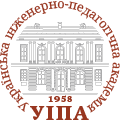 |
 |
NEW MECHANISMS OF PARTNERSHIP-BASED GOVERNANCE AND STANDARDIZATION OF VOCATIONAL TEACHER EDUCATION IN UKRAINE (PAGOSTE)
(609536-EPP-1-2019-1-DE-EPPKA2-CBHE-SP)
Нові механізми управління на основі партнерства та стандартизації підготовки викладачів професійної освіти в Україні
Project acronym: PAGOSTE
Priority: Capacity Building in higher education – Structural Projects
Project duration: 15.01.2020 – 14.01.2023
EU funding instrument: European Neighbourhood Instrument (Erasmus+: КА2 CBHE)
Target groups:
Students at HEIs who study in vocational teacher training programs, VET teachers, VET school management, Ministry of Education and Science of Ukraine, VET learners, employers
Consortium members
EU partners
– University of Konstanz, Germany, coordinator
– University Roma Tre, Italy
– Vienna University of Business and Economics, Austria
Ukrainian partners
– Ministry of Education and Science of Ukraine, Kyiv
– Institute of Vocational Education and Training at the National Academy of Pedagogical Sciences, Kyiv
– Kyiv National Economic University, Kyiv
– Ukrainian Engineering Pedagogics Academy, Kharkiv
– National Transport University, Kyiv
– South Ukrainian National Pedagogical University, Odesa
Project goals and objectives:
Wider objective is to foster the quality and relevance vocational teacher education in Ukraine by establishing standards with respect to partnership-based governance (PBG) mechanisms between universities, which offer vocational teacher training, and vocational schools.
Specific project objectives are:
– to establish effective mechanisms of partnership between HEIs, which are involved in vocational teacher education, and vocational schools and other stakeholders;
– to employ mechanisms of PBG for in-service vocational teacher training;
– to enable educational institutions involved in vocational teacher education to use standards for PBG.
Activities:
– analysis of vocational teacher education governance;
– elaboration and implementation of PBG mechanisms;
– content input from European partners on elaboration of PBG mechanisms;
– setting up PBG mechanisms for the national level.
Expected results:
- Governance of vocational teacher education analysed.
- Partnership-based governance (PBG) elaborated and implemented.
- Content from European partners on PBG inputted.
- PBG mechanisms for the national level set up.
The Erasmus+ project deals with governance in vocational teacher education (VTE) in Ukraine. The professionalization of teachers working in the field of vocational education and training (VET) is considered to be more complex than in the general education system as here the relevance of teachers’ competences not only has an impact on learners (vocational students), but also on the quality of VET as such and its functionality for the employment sector. An overarching quality criterion is to ensure that expectations of vocational schools and the motivations and competences of future teachers can be aligned.
This «matching problem» is materialized by the «theory-practice gap» as the «users» of VTE qualifications, being the employers of future teachers, are normally not involved in setting up or at least influencing how teachers are trained and how whatever they learn at university can be linked with and applied to in the classroom. This one-sided institutional reality explains why teachers do not feel well prepared for their future occupational destination.
PBG (partnership-based governance) is seen as an instrument to tackle this problem by including VET schools in activities such as curricula development or teaching methodology, and it even could mean establishing a governance system based on partnerships reaching beyond these two stakeholders. Since decentralisation is a major aspect of current Ukrainian VET policy, PGB in VTE fits into the political agenda, by questioning traditional roles of responsible institutions.
The project aims at developing and piloting governance structures between the Ukrainian partner HEIs and regional VET schools. The focus is on overcoming the theory-practice gap between university education and teaching requirement in VET, and on setting up governance in a new, i.e. partnership-based manner between relevant institutions in VTE.
The project aims at creating awareness for a modern VTE system in Ukraine, and at raising the status of the teaching profession.



